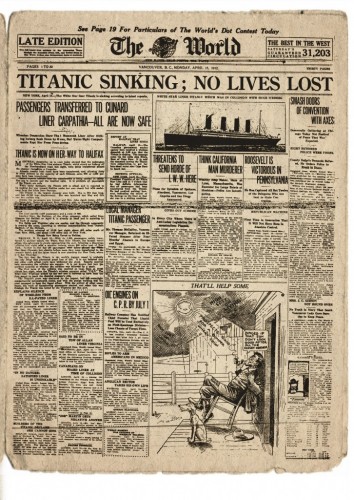Many former Obama supporters…especially the younger crowd…have lost considerable faith in Obama and the Democratic Party. Neo-Neocon notes that the political disillusionment encompasses both parties, and cautions that the “throw the bums out” mentality, however understandable, can be dangerous. She quotes from a book by Milton Mayer called They Thought They Were Free, which is an exploration of German attitudes from the 1920s through World War II. Interviews were conducted with 10 “typical” Germans, who Mayer refers to as “friends,” a couple of years after the war’s end. Excerpt:
National Socialism was a repulsion of my friends against parliamentary politics, parliamentary debate, parliamentary government—against all the higgling and the haggling of the parties and the splinter parties, their coalitions, their confusions, and their conniving. It was the final fruit of the common man’s repudiation of “the rascals.” Its motif was “throw them all out.” My friends, in the 1920”²s, were like spectators at a wrestling match who suspect that beneath all the grunts and groans, the struggle and the sweat, the match is “fixed,” that the performers are only pretending to put on a fight. The scandals that rocked the country, as one party or cabal “exposed” another, dismayed and then disgusted my friends…
and
My friends wanted Germany purified. They wanted it purified of the politicians, of all the politicians. They wanted a representative leader in place of unrepresentative representatives. And Hitler, the pure man, the antipolitician, was the man, untainted by “politics,” which was only a cloak for corruption…Against “the whole pack,” “the whole kaboodle,” “the whole business,” against all the parliamentary parties, my friends evoked Hitlerism, and Hitlerism overthrew them all…
Indeed, revulsion against the dysfunctionalities of a parliamentary democracy can lead to something much, much worse. Weimar government and Weimar society had their problems, but they were infinitely preferable to what replaced them.
Also, most Germans in the 1920s and 1930s—like people in other European countries—keenly remembered the spirit of self-sacrificing idealism that had prevailed in 1914, and a considerable proportion of them believed that this idealism had, in one way or another, been exploited and betrayed. Idealism betrayed leads to cynicism, and cynicism can lead to new and twisted forms of idealism.
On May 5, 2013, Barack Obama warned Ohio State students about the dangers of political cynicsm. As it happened, this speech came only a few days before the public revelations about the Obama administration’s use of the IRS to target political opponents…which is, of course, only one of this administration’s many failures and violations of trust.
Erich Maria Remarque’s novel The Road Back is largely about the loss of idealism and social trust in the years following World War One…although it is set in Germany, the same factors were operative, if to a lesser degree, in the other European belligerent countries. One of the characters in the story is Ludwig Breyera serious aspiring intellectual as a student, a dedicated and responsible officer in wartime. A few years after the war’s end, he is shattered by the feeling that it was all for nothing:
They told us it was for the Fatherland, and they meant the schemes of annexation of a greedy industry.They told us it was for honour, and meant the quarrels and the will to power of a handful of ambitious diplomats and princes..They stuffed the word Patriotism with all the twaddle of their fine phrases, with their desire for glory, their will to power, their false romanticism…And we thought they were sounding a bugle summoning us to a new, a more strenuous, a larger life. Can’t you see, man? But we were making war against ourselves without knowing it!…The youth of the world rose up in every land believing that it was fighting for freedom! And in every land they were duped and misused; in every land they have been shot down, they have exterminated each other.
One could do a present-day riff on this speech: “They told us it was for the environment, and they meant the handouts of taxpayer money to crony capitalists. They told us it was about improving education for the poor, and they meant protecting the privileges of incompetent administrators and teachers’ union…etc”
In the book, Ludwig Breyer’s despair drives him to suicide…and there were doubtless many real-life veterans who came to similar ends. Others, though…among veterans but also among those who had been too young or too old to fight..attempted to recapture the 1914 sense of idealism and unity through involvement in extremist politics of one band or another…and we know how that ended.
Good discussion thread at the Neo-Neocon post.
